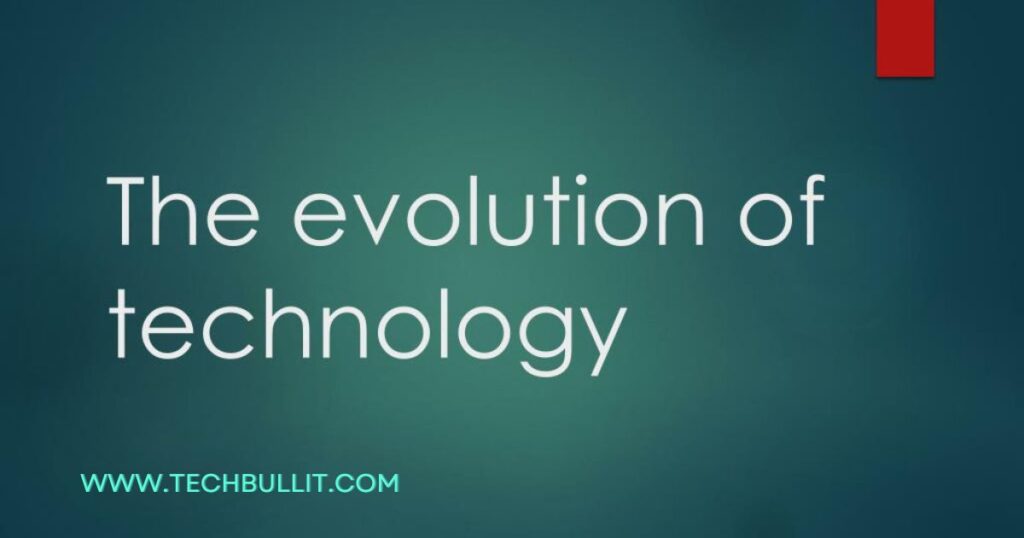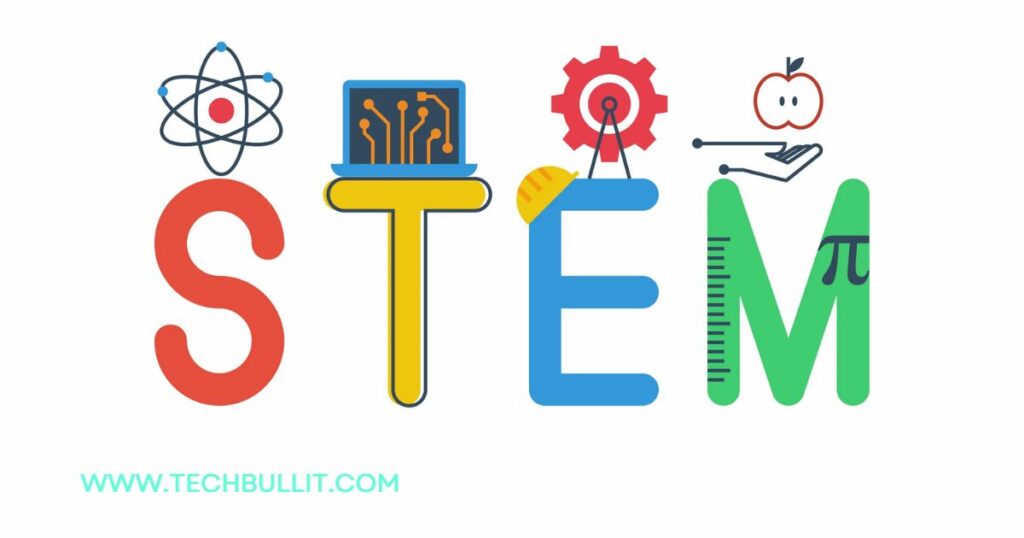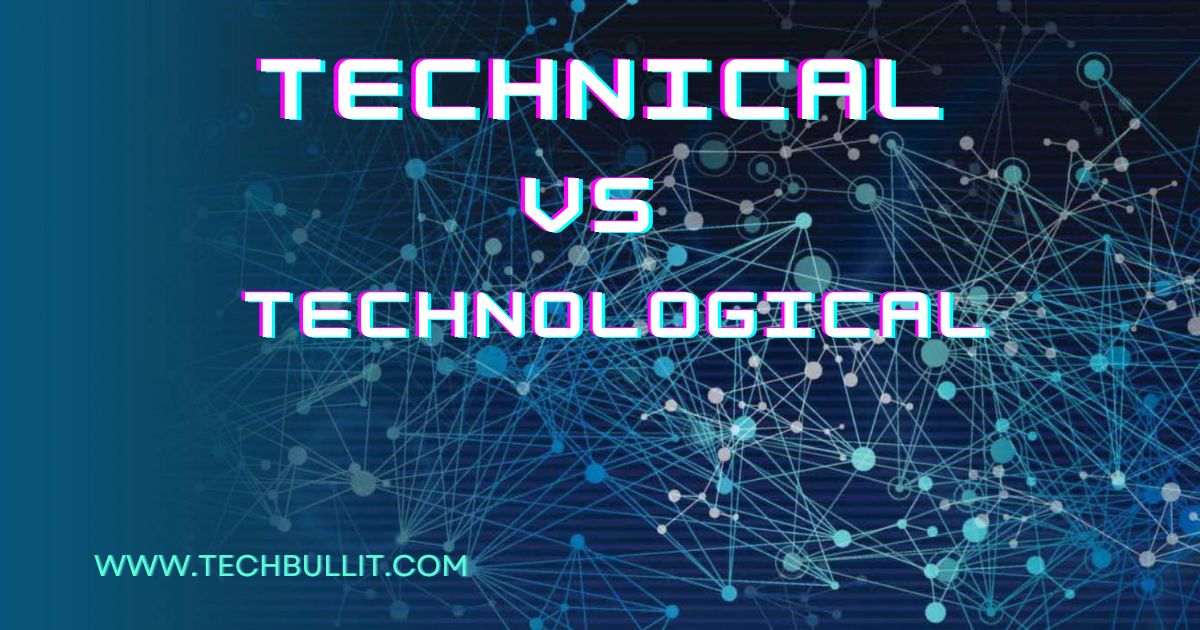Let me start by asking you a question – have you ever gotten tripped up on the phrases “technical” vs “technological”? If you’re like most people, you might use them somewhat interchangeably when talking about modern innovations and capabilities.
But did you know there’s an important distinction between these two closely related terms? Understanding the key differences can help sharpen your vocabulary. More than that, it provides a useful frame for making sense of our rapidly evolving world.
You see, while “technical” vs “technological” are rooted in the same core concept of human ingenuity, they ultimately describe two related but separate notions. One is about nuts-and-bolts mastery. The other is a higher-level view of revolutionary tools and paradigm shifts.
On the most basic level, something that is “technical” refers to specific skills, methods, and knowledge required for operating systems, using tools, or accomplishing specialized tasks effectively. It’s about refined expertise in a particular craft or domain.
In contrast, the idea of being “technological” takes a broader perspective. It examines the overarching tools, innovations, and world-shaping impacts that emerge when technical abilities combine with scientific principles and human imagination.
Still feeling a bit confused? Don’t worry – that’s perfectly understandable when distinguishing concepts this intertwined yet distinct. That’s why over the next few sections, we’ll peel back the layers with clear definitions, historical context, and real-world examples.
By exploring how these dual concepts of “technical” and “technological” influence diverse fields like information technology, healthcare, education, and more, their differences – as well as interdependence – will start making a lot more sense.
So let’s roll up our sleeves, put on our learning caps, and develop a sharper grasp of this terminology puzzle. Separating the technical trees from the technological forest will pay dividends as we aim to build an increasingly innovative, responsible, and inclusive future for us all.
The Essence of Technical
Let’s start by understanding what it means to be “technical.” The technical side of things is all about the practical skills and knowledge required to perform specific tasks or operate certain systems.
Definition and Scope
When we talk about technical skills, we’re referring to specialized abilities that allow someone to accomplish hands-on work in a particular field or industry. These skills are usually learned through direct training or years of experience.
Some examples of technical skills include coding and programming, equipment operation and repair, clinical and medical procedures, data analysis methods, and so on. The scope of what’s considered “technical” can vary widely across different professional domains.
Historical Context
Even in ancient times, technical skills and expertise played a vital role in the advancement of civilizations. The engineering marvels like the Egyptian pyramids or Roman aqueducts required deep technical mastery to construct.
Throughout history, pioneers and inventors like Leonardo da Vinci bridged the realms of art and technical craft through their innovative abilities. The progression of humanity has always relied on developing and passing down critical technical knowledge from one generation to the next.
Real-World Applications
In today’s world, having a core set of technical skills is essentially the bare minimum requirement for most careers and industries. In the IT field, that could mean coding proficiency or cybersecurity knowledge. For healthcare workers, it’s surgical techniques or operating medical technology.
Even skilled tradespeople like electricians, plumbers, or automotive technicians require extensive technical training to properly install, maintain and repair the systems they work with daily. These applied, specialized abilities are what make the technical workforce essential across all sectors.
The Evolution of Technological

While “technical” focuses on specific skills, the concept of “technological” takes a broader, more overarching view of the tools and systems that shape our world.
Definition and Exploration
In simple terms, technology refers to the application of scientific knowledge to solve problems or meet human needs and wants through the creation of tools, systems, and innovative methods. It explores how we can use our technical knowledge to advanced capabilities.
So while the technical elements enable us to build or operate individual technologies, the technological realm considers their combined societal impacts, continual development through research, and the driving forces behind technological progress itself.
The Technological Revolution
Looking through the lens of history, we can see how transformative technological advancements have revolutionized human civilization again and again. The Industrial Revolution of the 18th-19th centuries is a prime example.
This pivotal era saw societies rapidly shift from being agricultural and rural to industrialized and urban-centered. New manufacturing technologies completely altered humanity’s relationship with the natural world and with each other. Similar seismic technological shifts continue reshaping our modern era.
Impact on Modern Life
In our present age, the impacts of rapidly evolving technologies permeate virtually every aspect of daily life. How we communicate, work, learn, receive healthcare, access entertainment – it’s all been radically transformed.
Emerging technologies like the internet, mobile devices, renewable energy, nanotechnology, and artificial intelligence are just the latest wave shaking up established norms and routines. Both the immense opportunities and complex challenges presented by accelerating technological change are humanizing society.
Whether viewed as a utopian or dystopian force, what’s undeniable is technology’s dominance as a driving factor shaping our collective experience as a species in the 21st century and beyond.
Read more posts: Unlock Potential with All Access Technologies: Digital Divide in the 21st Century
Technical vs Technological: The Key Differences
Now that we understand the essence of “technical” and “technological” separately, let’s dive into how they differ from each other. While related, these two concepts have some critical distinctions.
At its core, the word “technical” refers to the specialized skills, methods, and practices required to accomplish specific tasks proficiently. It’s about the nuts and bolts knowledge of how to properly use tools or operate systems.
In contrast, “technological” takes a broader, big-picture view that encompasses the overarching systems, innovations, and societal impacts derived from applying technical knowledge and scientific principles.
The technical is focused on the granular “how,” while the technological examines the wider “what” – as in what revolutionary capabilities are made possible through harnessing new technologies.
Further Comparisons Across Industries
To better illustrate the technical vs technological divide, let’s look at some examples across major industries:
Information Technology (IT)
In IT, the technical realm includes skills like programming, database management, network security, and troubleshooting. But the technological side looks at paradigm-shifting innovations like cloud computing, artificial intelligence, and the Internet of Things.
While technical skills allow working on specific applications, studying broader technological trends helps predict future changes and drive innovations.
Healthcare
In healthcare, technical skills cover things like a surgeon’s proficiency in complex procedures or a lab tech’s equipment operations. The technological side involves groundbreaking innovations like electronic health records, telemedicine, AI-aided diagnostics, and advanced medical devices.
Technical skills keep the field running day-to-day, while technological advancements are revolutionizing how care is provided, boosting efficacy and patient outcomes.
Education
For educators, technical skills involve lesson planning, classroom management, assessment, and instructional design. Technological developments, meanwhile, enable innovations like online learning platforms, educational software, interactive digital curricula and more.
Technical pedagogy ensures teaching fundamentals, but leveraging new technologies expands learning opportunities and modalities for students.
Societal Impacts
This technical vs technological distinction has widespread societal implications. Technical skills are vital for economic productivity and individuals’ ability to create value in the workforce. But large-scale technological shifts, like the digital revolution, demand constant upskilling and adaptation by society.
Issues like the digital divide – inequalities in access to modern information/communication technologies – require not just technological solutions, but programs improving digital literacy and technical skills across underserved populations.
Future Trends and Technical Education

As fields like artificial intelligence, blockchain, quantum computing and other emerging technologies continue advancing, future education models must account for both technical skills and broader technological fluency.
Emphasizing STEM and Beyond
There’s a clear need to emphasize STEM (Science, Technology, Engineering and Math) education to cultivate essential technical capabilities for coming innovations. However, the humanities and social sciences are also crucial for contextualizing technology’s societal and ethical dimensions.
An interdisciplinary approach combining STEM with humanities insights can produce a well-rounded workforce adept at the technical mastery to create new technologies responsibly.
Some tips and tricks for understanding the differences between “technical” and “technological”.
There are some tips and tricks for understanding the differences between “technical” and “technological.”.
1: Think “Skills” vs “systems.”
A helpful way to distinguish technical from technological is to think in terms of skills versus systems. Technical is about the specialized abilities needed to perform tasks correctly. Technological is the broader systems and innovations that emerge from combining those skills with scientific knowledge.
2: Look at the Scope
Technical lives in the details and has a narrow scope. It focuses on specific methods, procedures, and operation of tools. Technological takes a wider view – it considers the entire landscape of integrated tools and their societal impacts.
3: Use Real-Life Examples
Having trouble with the concepts? Try grounding them in familiar examples from your own life. Your smartphone repair technician has technical skills in fixing devices. However the existence of smartphones themselves is an influential technological innovation.
4: Remember History
The distinction becomes clearer when you think through history. ancient construction of the pyramids relied on technical mastery of architecture and engineering practices. However, the pyramids themselves represented transformative technological achievements for their era.
5: Consider Your Career
If you’re struggling, apply the lens to your own line of work. As a coder, your technical skills involve programming languages and software development practices. But innovations in cloud computing, AI, and cybersecurity are part of the broader technological progress reshaping the future of your field.
6: Watch for Prefixes
Words using prefixes like bio-, nano-, cyber-, etc. tend to indicate things residing in the technological realm – as in biotechnology, nanotechnology, cyber technology. Plain old “technology” usually signifies the technical side.
7: Think “How” vs “What”
Here’s one last trick – technical is about the nitty-gritty practical knowledge of “how” to build or operate tools correctly. Technological is the higher-level conceptual exploration of “what” new capabilities these tools introduce to society.
The more you can anchor these two related but different concepts with real-world examples and mental models, the better you’ll absorb their distinct meanings and nuances over time.
Conclusion: Navigating the Technical and Technological Landscape
In our rapidly evolving world, technical skills and technological progress have become inextricably intertwined drivers of human achievement and societal development.
Final Thought
While the technical provides hands-on mastery for accomplishing goals, examining the technological big picture catalyzes possibilities for transformative innovation. A balanced co-emphasis on both cultivating specialized expertise and expanding technological horizons will lead humanity towards its brightest future potential.
As we strive to harmonize technical craft with society’s technological visions, a spirit of lifelong learning, ethical consideration, and equitable access must remain guiding priorities. With open-minded integration of the technical and technological realms, we can collaboratively navigate an empowering path forward.
FAQ’s
What’s the simplest way to understand the difference between technical and technological?
The simplest way to think of it is – technical refers to the practical skills for using tools or operating systems. Technological is the bigger picture view of innovations, capabilities, and impacts those tools enable in society.
Can you give me an example of something that is more technical vs. technological?
Sure! A technical skill would be something like knowing how to code a website using HTML, CSS, and JavaScript. The technological side is the overall existence of the World Wide Web and the internet that revolutionized communication and access to information.
Why is it important for educational programs to cover both technical skills and technological concepts?
It’s important because students need hands-on technical abilities for their field, but also a broader understanding of how emerging technologies might transform or disrupt that field. Having both skill sets allows them to be innovators.
How do technical skills and technological progress depend on each other?
They have a symbiotic relationship. Technical skills allow us to develop and operate new tools or systems. But then those tools enable technological advances that create new societal needs for upgraded technical skills. It’s an iterative cycle that drives innovation.
Is there a risk of societies becoming too reliant on technology and losing core technical skills?
There’s certainly a risk if we don’t strike the right balance. While beneficial, we can’t let the advancement of technologies make us forget fundamental technical skills. Retaining hands-on mastery in tandem with technological progress is ideal.

Lucas Steele is an experienced professional with 10 years in education. “Teachbullit” is his domain, reflecting expertise in teaching and learning.









